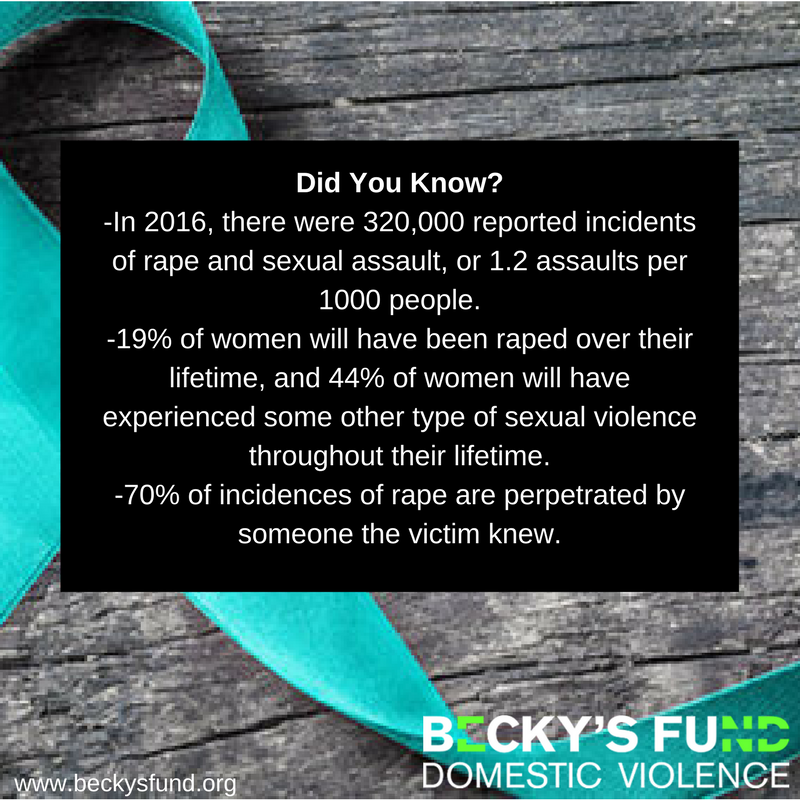
During April, we recognize Sexual Assault Awareness Month, a national effort to educate about the realities of sexual assault. According to the Department of Justice, “sexual assault is any type of sexual contact or behavior that occurs without the explicit consent of the recipient. Falling under the definition of sexual assault are sexual activities as forced sexual intercourse, forcible sodomy, child molestation, incest, fondling, and attempted rape,” (“Sexual Assault”). However, sexual assault is also for survivors to define for themselves.
Part of educating people about sexual assault includes addressing misconceptions about it. Where many people believe that sexual assault is the survivor’s fault, either because of the way they were dressed or because of their behavior (drinking alcohol, doing drugs, acting promiscuously, etc.), the truth is that the only person responsible for sexual assault is the perpetrator. Anyone can commit sexual assault, including someone’s significant other; consent to a relationship is not open-ended consent to all activities.
Sexual assault can also have long-term repercussions for a survivor’s health, including depression, flashbacks, PTSD, sleep disorders, and eating disorders. There are also physical concerns, such as unwanted pregnancy and an increased risk of a STD, a STI, or HIV (“Effects of Sexual Violence”).
To support someone who has experienced sexual assault, the most important step to take is to believe them. Victim blaming and questioning them can cause them more trauma and make it more difficult for them to speak out, and has resulted in the statistic that about two-thirds of sexual assaults are never reported to law enforcement (“The Criminal Justice System: Statistics). The second step is to support whatever decision your friend or loved one makes; what they need more than anything is to feel like they have autonomy and are having their choices respected. If they need further support, go with them to exams or connect them with local resources. Some examples for the DMV area are listed below. By being proactive, educating ourselves, and working together, we can end the epidemic of sexual assault.
Resources:
RAINN
National Sexual Assault Hotline (24/7): 1-800-656-HOPE(4673)
24/7 Online Chat: https://www.rainn.org/
DC Rape Crisis Center
Crisis Support Hotline (24/7): 202-333-RAPE(7273)
Counseling services: 202-470-1188 to schedule an intake session for therapy
Network for Victim Recovery of DC (NVRDC)
Advocacy services, part of SANE Program: DC Victim Hotline – 1-844-4HELPDC(1-844-443-5732)
Legal services and general Phone #: 202-742-1727
Works Cited:
Casteel, Kathryn, et al. “What We Know About Victims Of Sexual Assault In America.” FiveThirtyEight.com, FiveThirtyEight, projects.fivethirtyeight.com/sexual-assault-victims/.
“The Criminal Justice System: Statistics .” RAINN, Rape Abuse Incest National Network, www.rainn.org/statistics/criminal-justice-system.
“Effects of Sexual Violence.” RAINN, Rape Abuse Incest National Network, www.rainn.org/effects-sexual-violence.
“Perpetrators of Sexual Violence: Statistics.” RAINN, Rape Abuse Incest National Network, www.rainn.org/statistics/perpetrators-sexual-violence.
“Sexual Assault.” The United States Department of Justice, The United States Department of Justice, www.justice.gov/ovw/sexual-assault.
Recent Comments